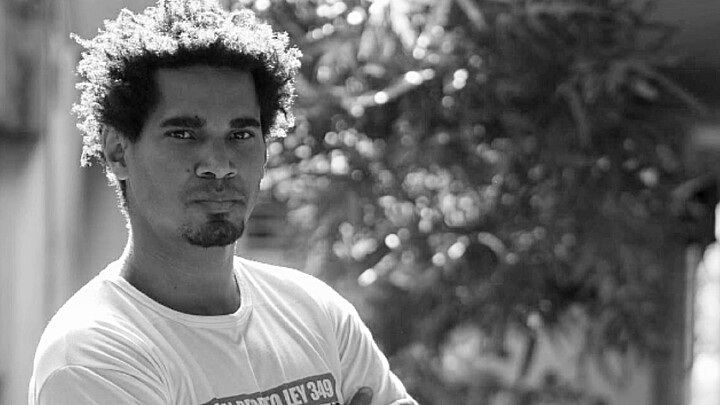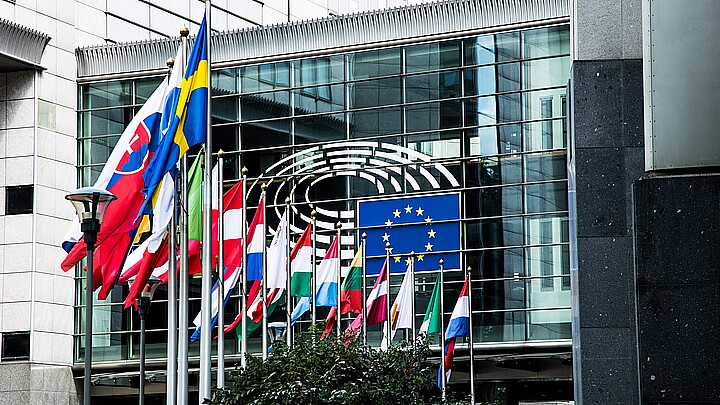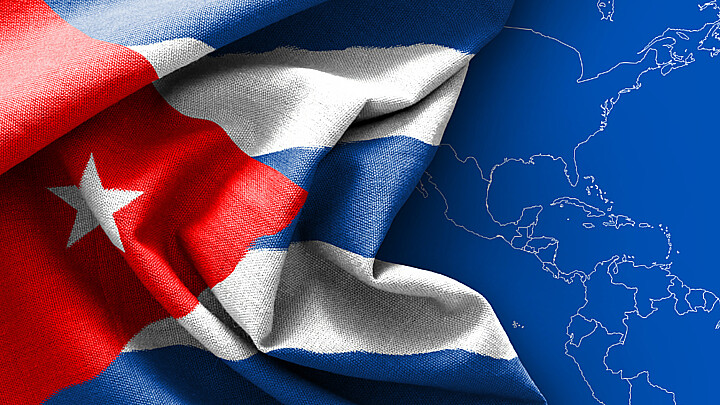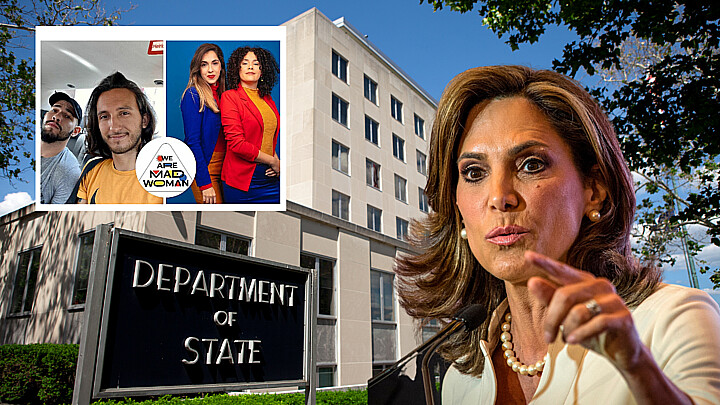Human Rights
Cuban activists slam Associated Press for toning down anti-communist protests, 'complicity' with regime
Prominent Cuban activists criticized the Associated Press (AP), a U.S.-based agency with a permanent bureau in Cuba, for its coverage of the ongoing protests in Cuba.
September 30, 2022 8:23pm
Updated: September 30, 2022 8:35pm
Several Cuban democracy activists criticized the Associated Press (AP), a U.S.-based news agency with a permanent correspondent in Cuba, for its coverage of the protests that took place on Thursday, Sept. 29 in Havana.
Hundreds of people took to the streets of Havana to express their malcontent with the regime and its management of the current energy crisis, which worsened this week with the impact of Hurricane Ian.
The electrical situation in Cuba has gone on for months with blackouts lasting more than 12 hours a day.
Videos broadcast on social media show that in the demonstrations, besides demanding the re-establishment of the electric service, many Cubans were also demanding "freedom."
According to activist Saily González Velázquez, AP coverage in Cuba by reporter Andrea Rodríguez and LATAM/Caribbean News Director Eduardo Castillo suppressed the peoples' "cries for freedom that were heard last night in Cuba."
The exiled activist expressed on Twitter that [the AP] journalists "prefer to blame what happened solely on the blackout, with disturbing bias. They also forget to mention the regime's deployment of repressive forces to silence protestors. "
In the Spanish version of the AP article, Rodriguez and Castillo claim that "dozens of Cubans protested" in the Cuban capital "demanding the restoration of the electric service."
In another part of the article, they suggest that an estimated 400 demonstrators in the Cerro neighborhood who took to the streets only shouted, "We want light, we want light!" while banging pots and pans.
When citing the July 2021 protests, the largest demonstrations against Cuba's communist regime, the AP blamed the outbreak on "blackouts and shortages aggravated by the pandemic and U.S. sanctions" while disavowing any cries for freedom against the regime's repression.
¿Escuchan lo mismo que yo? ¡El pueblo grita libertad! Tus matones no pueden callar el clamor de tantas voces tirano de pacotilla @DiazCanelB. Por más palos que mandes a dar, el cubano lleva inscrito en su alma el ansia de un país libre y próspero sin la familia Castro y lacayos pic.twitter.com/AeP4ssu0mc
— Mario J. Pentón (@MarioJPenton) September 30, 2022
They scantily claimed that "some [protesters] also lashed out at the Cuban government."
"How long will the international accredited press in Cuba remain complicit with the dictatorship?" González Velázquez questioned.
Other activists raised criticisms that in the English version of Rodríguez and Castillo's article, the headline described the Cuban protests, which amassed hundreds in unrelated Havana neighborhoods as "small protests" while refraining to mention the regime's deployment of military soldiers to crack down on dissent.
"Yesterday we called on foreign press agencies to report what was taking place in Cuba. And here is the 'report.' The entire country without electricity and Internet, a given audience of thousands of people who don't know what is going on with their families. And even then, the [foreign press] do not talk about the repression," said art professor and activist Anamely Ramos.
Ayer pedíamos las agencias de prensa extranjera que reportaran lo que pasaba en Cuba. Y aquí está el “reportaje”. Cuba entera sin luz y sin internet, un público seguro de miles de personas que no saben qué pasa con sus familias. Y ni aún así hablan de la represión. #SOSCuba https://t.co/oO67htljG4
— Anamely Ramos González (@AnamelyRamos) September 30, 2022
Venezuelan journalist Gabriel Bastidas criticized that, "just like on 11J, we learn once again about what is happening inside Cuba thanks to independent journalists and ordinary citizens who upload information to social media with the precarious connection that exists. International agencies with a presence on the island do not inform."
José Raúl Gallego, a Cuban professor of journalism based in Mexico, asserted that "these agencies are more concerned about maintaining their credentials and their first-world salaries in a miserable country than about doing journalism."
According to Gallego, "it is more advisable for them to leave. The Cuban Communist Party's media are already there for propaganda."
The Cuban regime mobilized on Thursday a large number of troops and vehicles of the National Revolutionary Police (PNR), the Special Brigade of the Ministry of the Interior (Minint), and other military forces to prevent the protests from spreading to several points of the capital.
The demonstrations of popular unrest were most numerous in San Francisco de Paula, in the municipality of San Miguel del Padrón; in the community of Bacuranao Beach; and in the Havana municipalities of El Cerro and Arroyo Naranjo, among others. There were also reports of banging of pots and pans in other areas of the capital.
In the midst of these protests, at approximately 8 p.m. Cuban time, a massive internet blackout occurred throughout the island. That connection, provided by the state monopoly Etecsa was reestablished 3 a.m. on Friday.











